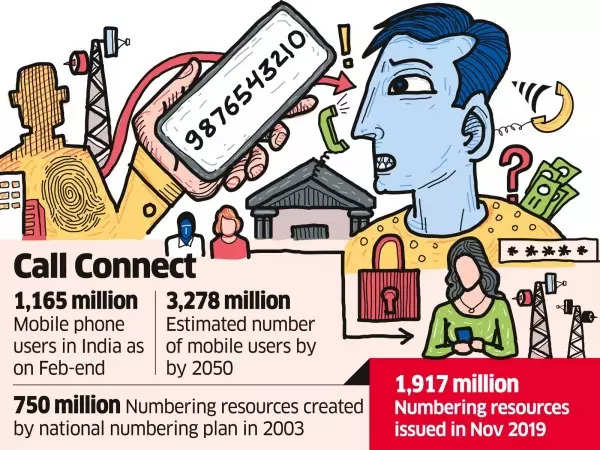Consequently, a person who has recently acquired a new mobile connection may unexpectedly receive calls from a bank recovery agent.Alternatively, one may encounter difficulties linking their new mobile number to their bank account or UPI, as it is already associated with someone else.
This is a clear indication that the individual may have been assigned a recycled mobile number by the telco, which was used by another person until a few months prior, states an ET report by Kiran Rathee.
According to regulations, telecom companies can reclaim a mobile number from a customer if it remains unused or not recharged for a period of six months. In the case of mobile number portability (MNP), if a customer has initiated a request to port but has not transitioned to another telco, the number will be withdrawn after two months.

Recycled mobile phone numbers
“As numbering resources are finite, there can’t be unlimited allocation. Since, demand for mobile numbers is rising rapidly, one has to reuse existing resources,” an official told the financial daily.
While the issuance of recycled numbers is legal and necessary, it often causes unnecessary inconvenience for the new customer, who is compelled to contact various authorities, such as banks, to disconnect the details of the previous owner.
Also Read | Tracking mobile frauds with caller ID: Soon, your network provider will warn you about scam calls – here’s how
The Department of Telecommunications (DoT) assigns numbers for mobile and landline services as part of the numbering series from levels 1-9. Previously, mobile numbers began with level ‘9’, but due to increasing demand, levels 8, 7, and 6 are also being utilized for mobile services.
In November 2019, the Department of Telecommunications (DoT) allocated a total of 191.7 crore numbering resources for mobile services across levels 6 to 9. According to the sector regulator, India had approximately 116.5 crore mobile phone subscribers as of February end, with 87.7 crore of them being wireless broadband users. The overall tele-density in the country stood at 83.27%.
Queries sent to major telecom operators like Bharti Airtel, Reliance Jio, and Vodafone Idea regarding recycled mobile numbers remained unanswered. For machine-to-machine (M2M) services, the DoT had allocated a separate 13-digit numbering series.
Officials, however, emphasize that the issue lies not with recycled numbers but rather with the lack of coordination among various departments. For example, when a mobile number is withdrawn from a customer, the associated KYC (know your customer) details are removed from the user base. When the same number is assigned to a new person, their KYC information is stored. However, since the database is not connected with banks, UPI, or e-commerce platforms, the new user must manually update their details.
“There is no unified platform where the information can be shared with all the stakeholders,” an executive with a telco said.
The government recognizes this problem and has established a digital intelligence platform (DIP) to facilitate coordination among the various stakeholders. The DIP will be useful not only for managing recycled numbers but also for curbing the misuse of telecom resources in cybercrime and financial frauds.

